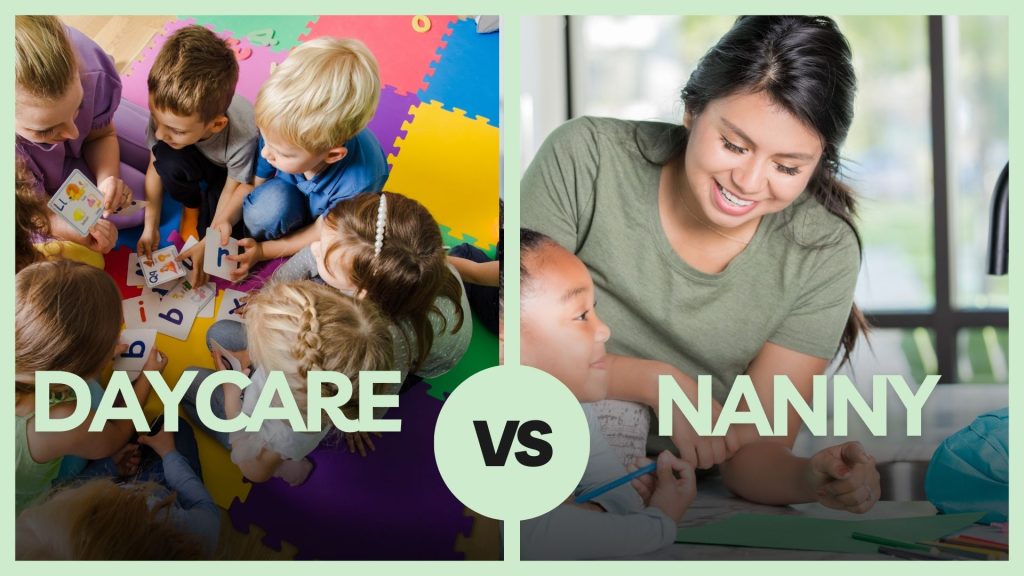
Introduction
For parents seeking childcare solutions, the choice between hiring a nanny or enrolling their child in a daycare center can be a pivotal decision. Each option comes with its own set of advantages and disadvantages. In this comparative essay for the House Managers Network blog, we will delve into the pros and cons of having a nanny versus sending a child to daycare. By exploring factors such as cost, personalized care, socialization, and flexibility, we aim to help parents make an informed choice that best suits their family’s needs.
I. Personalized Care
Nanny (Pros): One of the most significant advantages of having a nanny is the personalized care they offer. Nannies provide one-on-one attention, tailoring activities, schedules, and care to the specific needs and preferences of the child. This individualized care can be especially beneficial for infants and children with special needs.
Nanny (Cons): On the downside, the child may have limited exposure to different caregiving styles and perspectives. This could potentially hinder their adaptability and social skills.
Daycare (Pros): Daycare centers, on the other hand, offer a structured environment with multiple caregivers. Children benefit from interactions with various adults, allowing them to adapt to different personalities and routines.
Daycare (Cons): However, this may also lead to less individual attention, as caregivers must manage several children simultaneously. Some children may thrive in this social environment, while others may find it overwhelming.
II. Socialization
Nanny (Pros): Nannies can facilitate socialization opportunities through playdates and outings, but it is typically a more controlled and less overwhelming experience compared to daycare.
Nanny (Cons): The limited number of children in a nanny’s care can potentially limit a child’s exposure to peer interactions, which are vital for developing social skills.
Daycare (Pros): Daycare centers provide a structured environment for socialization. Children interact with peers daily, learning essential social skills such as sharing, communication, and conflict resolution.
Daycare (Cons): However, the larger group dynamic can sometimes lead to conflicts or the spread of illnesses.
III. Cost
Nanny (Pros): Nannies often come at a higher cost, but this expense can be justifiable for families with multiple children, as the cost per child remains constant.
Nanny (Cons): For some families, the cost of hiring a nanny may be prohibitive, especially if they require full-time care. Taxes, insurance, and benefits can further increase the financial burden.
Daycare (Pros): Daycare centers generally offer a more affordable solution, especially for families with a single child. Additionally, some employers offer daycare benefits or flexible spending accounts to help offset costs.
Daycare (Cons): While daycare is more cost-effective per child, the overall cost can still be substantial, and it may not offer the same level of personalized care as a nanny.
IV. Flexibility
Nanny (Pros): Nannies often provide greater flexibility in terms of hours, which can be a significant advantage for parents with irregular work schedules.
Nanny (Cons): However, this flexibility may come at a premium, and if the nanny is unavailable, parents may need to arrange alternative care.
Daycare (Pros): Daycare centers typically operate on fixed schedules, offering consistency and predictability for parents.
Daycare (Cons): The rigid hours can be challenging for parents with demanding jobs or non-standard work hours, requiring additional arrangements for early drop-offs or late pickups.
Conclusion
In the debate between hiring a nanny or opting for daycare, there is no one-size-fits-all answer. The choice ultimately depends on a family’s unique circumstances, including their budget, the child’s age and needs, and the parents’ work schedules. Nannies offer personalized care and flexibility but come at a higher cost, while daycare centers provide socialization opportunities and cost savings but may have less individualized attention. It’s crucial for parents to weigh these pros and cons carefully and consider what aligns best with their family’s priorities and values. Ultimately, both options can provide nurturing environments where children can thrive and develop.
